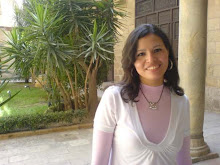The call to Islam: getting over a number of struggles
When Mohamed was 40 years old, 15 years after his marriage to khadija, a turning point occurred in his life.
 While he was mediating in a cave named "Hiraa", Muhammad received his first revelation from God through the Angel Gabriel. This revelation, which continued for twenty-three years, is known as the Quran.
While he was mediating in a cave named "Hiraa", Muhammad received his first revelation from God through the Angel Gabriel. This revelation, which continued for twenty-three years, is known as the Quran.Since this incident, Mohamed's mission to call people for the new religion started and started with it the challenges that he face in his journey. This takes us to the following question.
Why was spreading Islam difficult at the beginning?
It seems part of the human nature that we sometimes stick to the old traditions and we do not stop to reconsider the habits we inherited from our ancestors. This seems to be the case in the Arab Peninsula, where Mohamed was born, and where Mohamed’s call for the new religion first started.
Prior to the emergence of Islam, the Arab Peninsula w
 as dominated by values such as the existence of slaves, the low-status given to women and the worship of statues. For instance, women were regarded as property to be inherited after death and baby girls, especially in the lower substrata of society, were soon doomed to death after their birth for fear of disgrace.
as dominated by values such as the existence of slaves, the low-status given to women and the worship of statues. For instance, women were regarded as property to be inherited after death and baby girls, especially in the lower substrata of society, were soon doomed to death after their birth for fear of disgrace.And because Islam, the new religion, mainly criticizes such values and calls for a reconsideration of the habits and traditions adopted by people, it seems normal that people living at the time of Mohamed would revolt against the new religion. And it was against this background that Mohamed started to call for the new religion, a matter which took place over several stages.
The first stage: calling secretly for the new religion
Since it was difficult for Mohamed, who was not a well-to-do member of his tribe, to call for the new religion, he started to do this on a small scale. So, those who believed in Mohamed’s mission at first were his wife Khadija, and few members of his family.
However, a turning point occurred when a small group of the prestigious and wealthy people of Makkah (where Mohamed lived) joined the religion. Amongst those were Abu Bakr who later became one of the companions of the prophet. This period of secretly calling for the new religion took three years, after which started a new stage of calling for Islam.
Publicly calling for the new religion
After a period of three years, Mohamed started to publicly declare his faith; he won more followers; the majority of those were slaves and women, who found in the new religion which calls upon the equality between men and women, and slaves, and free people, enough support for their claim.
At the same time, Mohamed had to face many challenges from the nobles and leaders who found their position being threatened. They stood together, under the pretext of defending the religion of their ancestors, to fight the new religion.
Muslim’s immigrations to Ethiopia

As the result of these challenges from the Makkan unbelievers, some Muslims were subjected to torture, persecutions, isolations and boycotts. However, the Prophet was patient and worked on protection of Muslims. He asked Negus, King of Ethiopia, who believed in Christianity, to allow Muslims to migrate to his country. Negus welcomed the Muslims emigrants in his territory and refused to hand them over to the MakKan unbeliever rulers.
Death of khadija, Mohamed’s wife
Shortly after this, Prophet's faithful wife and greatest help, Khadija and his uncle Abu Talib, who also supported Mohamed, passed away. With the passing away of these two supporters, the Prophet lost the two who were the greatest restraint to the cruelties of Quraysh. As we shall see, the events following showed that the Prophet had yet greater difficulties to face.

